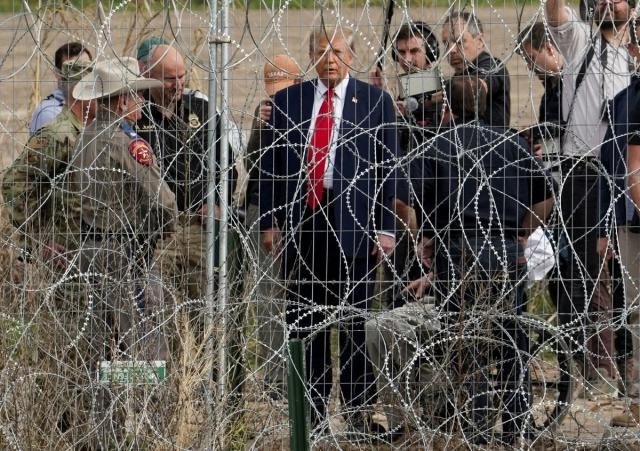The strict immigration policy of Texas’ Republican government has led to an increase in deadly police chases involving migrants and suspected smugglers.
According to data from Human Rights Watch, since 2021, at least 106 people have lost their lives and over 300 have been injured during police pursuits involving officers from the Texas Department of Public Safety and local law enforcement participating in Operation Lone Star.
On October 4, Wendy J. Rodriguez, 44, was on her way to work in El Paso after dropping her children off at daycare. At an intersection, her car was struck by a vehicle driven by 17-year-old Joseph Anthony Maldonado, who was being pursued by Texas police on suspicion of human smuggling. Rodriguez succumbed to her injuries.
According to Human Rights Watch, as cited by The Independent, nearly 10% of those killed in these chases were innocent bystanders. The majority of these pursuits start over minor traffic violations.
Operation Lone Star, launched by Governor Greg Abbott with an $11 billion budget, aims to strengthen state-level immigration enforcement. Texas authorities claim that the initiative has reduced illegal immigration, but critics highlight cases of racial profiling and dangerous police chases.
Vicki B. Gaubeca, deputy director for U.S. immigration and border policy at Human Rights Watch, stated: “To prevent unnecessary injuries and deaths, many police agencies across the country have restricted vehicle pursuits to situations where they are necessary to prevent death, injury, or significant property damage. Texas law enforcement should prioritize human life and stop endangering people, including Texans and innocent bystanders,” as reported by The Independent.
In response to the rise in incidents, U.S. Border Patrol implemented new guidelines in 2023 to limit high-risk chases. Other law enforcement agencies, such as the New York Police Department, have also adopted similar restrictions for public safety reasons.
Governor Abbott’s immigration policy has not only caused material damage but has also had psychological and emotional impacts. Numerous cases of racial profiling have been documented, with critics noting an atmosphere of fear, particularly among Latino communities near the border.
Michelle Serrano, from the organization Voces Unidas Rio Grande Valley, stated in an interview with The Independent: “It’s like a lawless zone. We are talking about a place where racial profiling is practiced freely. It feels like segregation.”
Despite these concerns, the Trump administration is seeking to strengthen cooperation between local and federal law enforcement on immigration. It has directed the Department of Justice to expand collaboration agreements with local police forces, even though studies have shown that such agreements often occur in areas where racial discrimination is already a problem. Additionally, the White House is pushing to cut federal funding for so-called “sanctuary” jurisdictions that limit local police assistance to federal immigration authorities.

